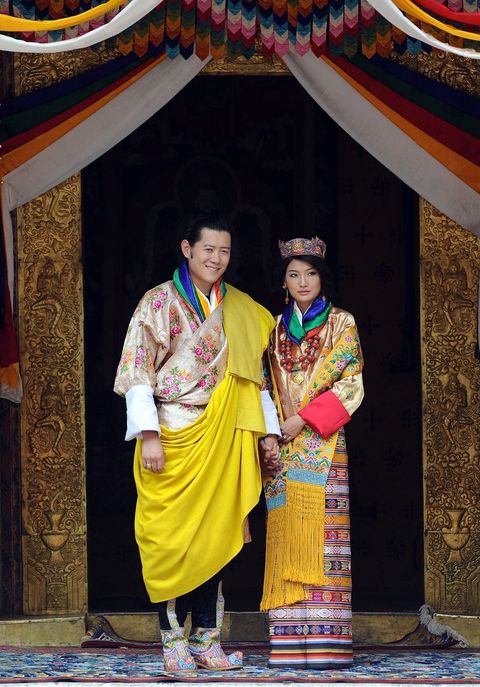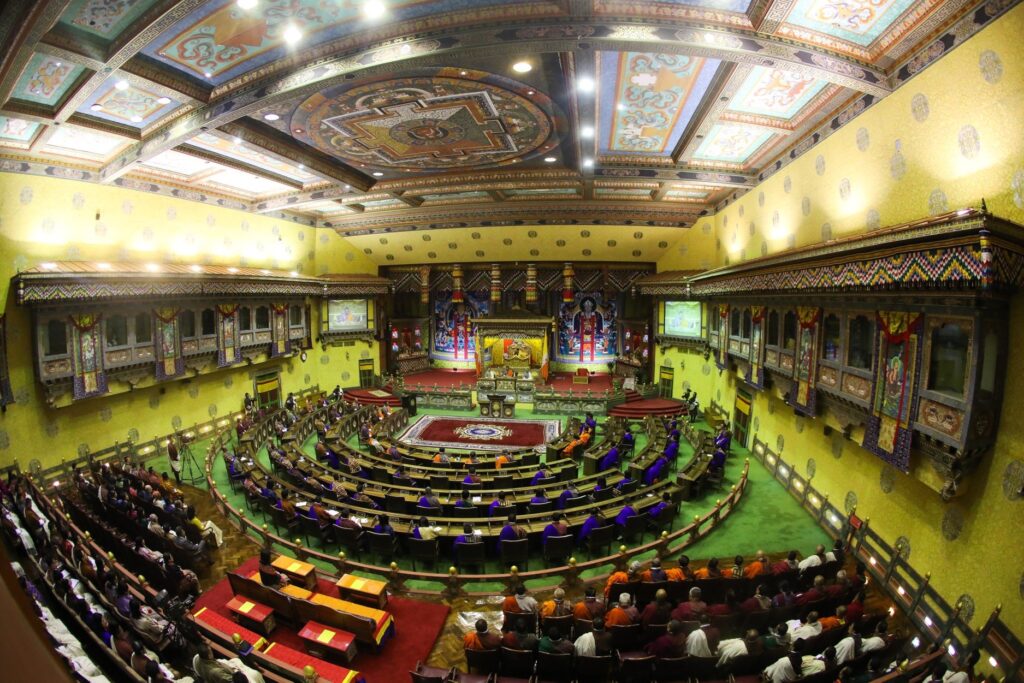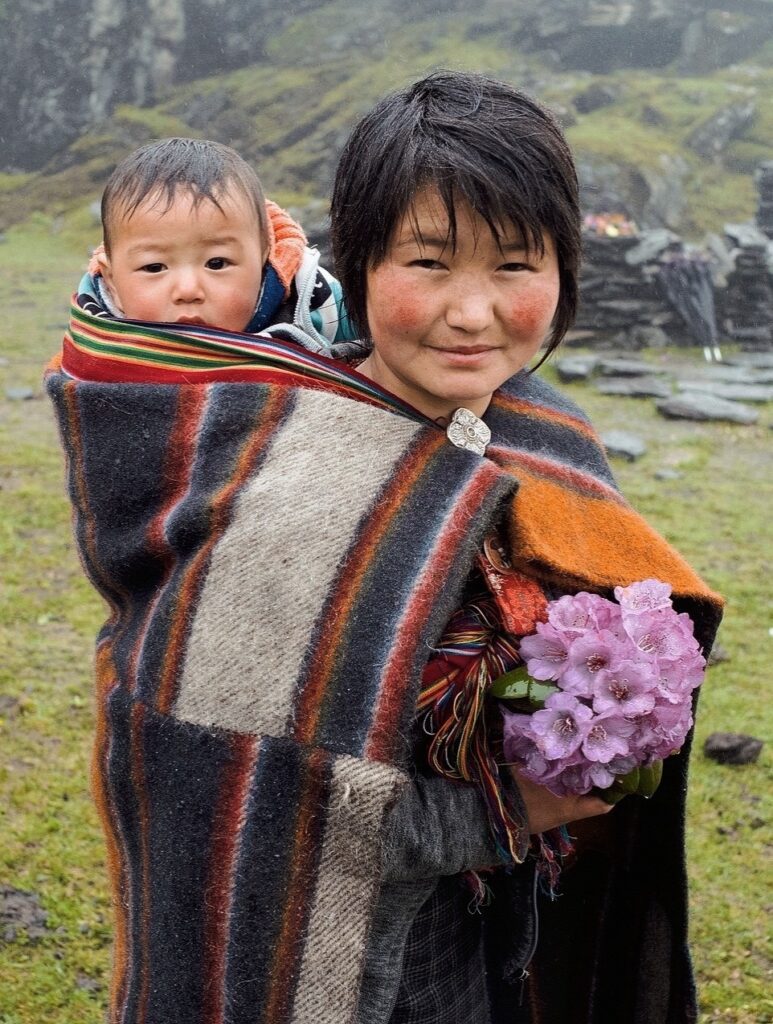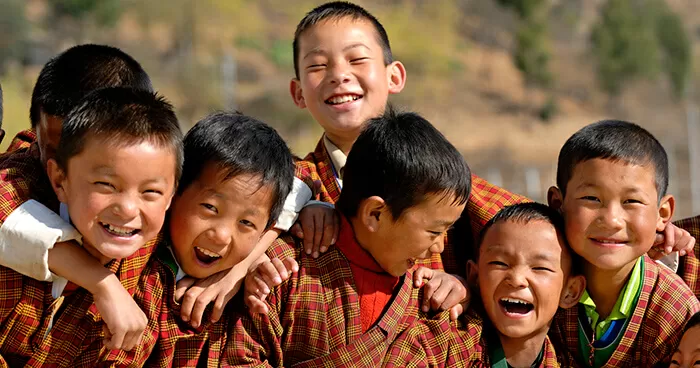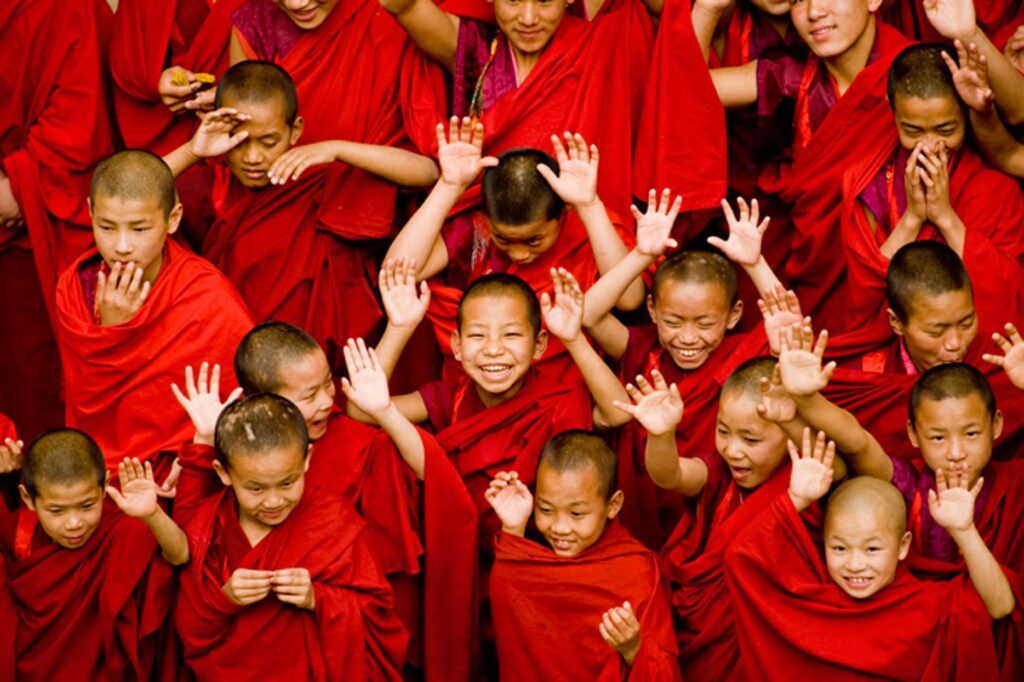Bhutan GNH/Monarchy
In the early 1970s, the visionary Fourth King of Bhutan, His Majesty Jigme Singye Wangchuck, proposed happiness as the indicator of progressive development for the Bhutanese people. Recognising the non-material roots of well-being, Gross National Happiness seeks to balance human needs within the limits of what nature can sustainably provide.
When Bhutan embraced democracy in 2008, the values of GNH were famously enshrined within its Constitution, “The State shall strive to promote those conditions that will enable the pursuit of Gross National Happiness.” GNH attracted unexpected global attention which endures to this day, drawing visitors from far and wide inspired by Bhutan’s innovative national policy.
GNH is practically applied under the Four Pillars of Good Governance, Sustainable Socio-economic Development, Preservation and Promotion of Culture, and Environmental Conservation, which are further elaborated within Nine Domains. Today in Bhutan all legislation must pass through the ‘GNH Screen’ to ascertain that it upholds these values.
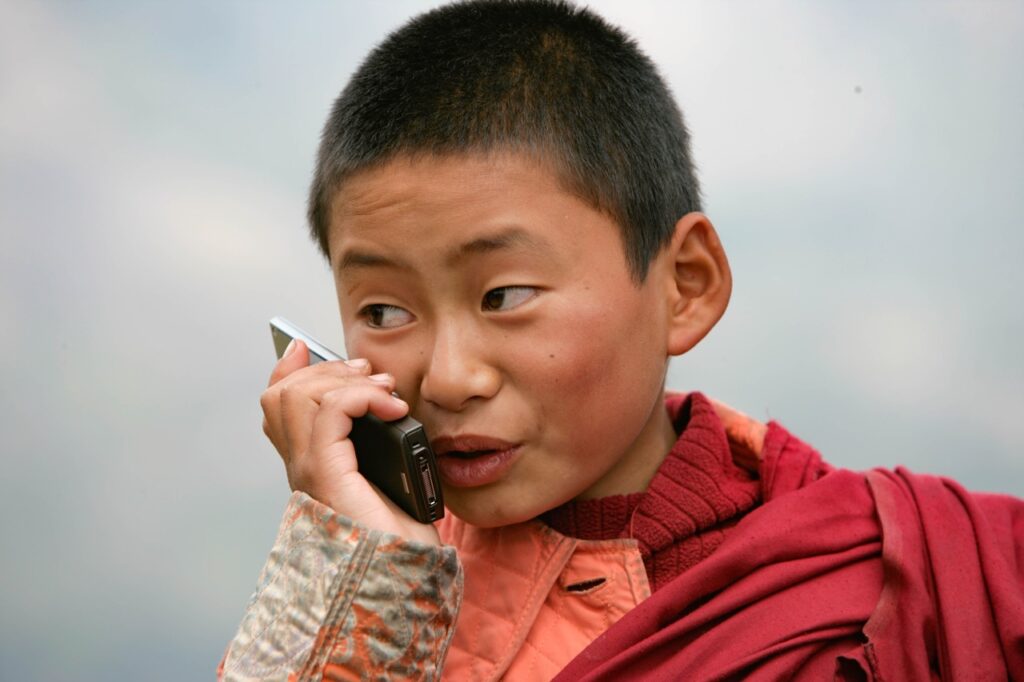
The unification of Bhutan into the modern constitutional monarchy it is today, originated in the mid-17th century with the arrival of Zhabdrung Ngawang Namgyal, a powerful Buddhist teacher and statesman, from Tibet. Unifying Bhutan as one nation-state, he famously separated monastic and secular rule and oversaw the building of Bhutan’s imposing dzongs which served as defensive fortresses, seats of government and home to the monastic body.
After Zhabdrung’s death, political upheaval destabilized the centralized governance he had established, resulting in a resurgence of powerful local governors. Strategically aware of the threat of colonization, Bhutan reunified in 1907 under the powerful Central Bhutanese Governor Trongsa Penlop Ugyen Wangchuk, who was unanimously elected by the people, officials and clergy and enthroned as the first hereditary King of Bhutan. In 1910 he secured the Treaty of Punakha, under which Britain guaranteed Bhutan’s independence.
Bhutan continued as an absolute monarchy, benefiting from the wise rule of Trongsa Penlop’s descendants, until the Fourth King, Jigme Singye Wangchuck initiated the country’s democratization in 2005. Under the rule of his son, the Fifth King Jigme Khesar Namgyel Wangchuck, the Kingdom adopted its first democratic constitution in 2008, when Bhutan officially became a constitutional monarchy. Throughout its young monarchy, Bhutan’s kings have been revered by the people for their wise leadership and continue to earn an almost devotional respect by their compassionate commitment to the well-being of all Bhutanese.
Join With Us
Discover, plan and book your perfect trip with expert advice, travel guides, destination information and inspiration from Longchenpa Tours & Treks.

